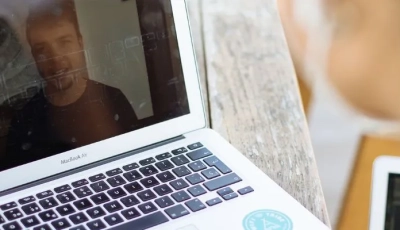If there’s one thing all digital nomads want, it’s to lead a free lifestyle. But, for this to work, any true digital nomad needs to become a productivity expert, someone who can strike the perfect balance between work, travel, and leisure time.
Otherwise, you can end up spending 90% of your time working and being permanently tied to your clients. It might also mean you can’t enjoy the places you are visiting and deny you the freedom to live as you like.
That’s why, after talking to the hundreds of digital nomads (and friends) we meet every year, we would like to share with everyone in the Repeople community 15 productivity strategies that work.
Here they are:
There Are Only Two Ways to Boost Your Productivity If You’re a Digital Nomad
As a digital nomad, you’re very likely to be looking for more free time and enough money to keep on leading this great lifestyle.
In that case, you have two options:
Increase your fees → If you are a freelancer, you can choose to work with fewer clients and have more free time, but you’ll need to improve the quality of the work you do. The risk here is that, if you lose a client, your income will be significantly reduced.
On the other hand, if you work remotely for a company, you can ask for a raise or a bonus linked to an improvement in your productivity.
Take less time → As a freelancer, you can finish work earlier, but you need to apply good strategies to be productive, be highly organized, and educate your clients to follow your new schedule.
If you work remotely for someone else, instead of asking for a raise, you could swap your current fixed schedule for a working arrangement based on objectives.
You Can’t Plan for Every Single Eventuality
Before you even consider how to improve your productivity, you need to accept that things won’t always go to plan. In fact, you probably know this already if you’ve traveled at all:
- Your flight might be delayed
- Your luggage might get lost
- You might lose your Internet connection
Unexpected situations can arise at any moment, and not even the most detailed schedule can account for every single eventuality. So, the first rule when planning your schedule is to give yourself a good buffer between tasks.
Morning Routines Are Great – but They Don’t Have to Be Instagram-Worthy
Routines are essential because they can help you remember what to do at any given moment. This is extremely useful when you travel and change environments frequently,
But you don’t need to copy the influencers by having a glass of lemon water, exercising, meditating, or writing in your journal first thing in the morning.
If these rituals work for you, by all means, go ahead! But, sooner or later, you’re still going to have to sit down and work. The sooner you do it, the sooner you’ll finish. And that’s the true routine.
Longer Stays are Better
As we mentioned before, routines are essential; but for them to really work, you need a certain amount of stability.
So, when you are looking up new destinations to visit, plan to stay at least two weeks in each destination. Otherwise, you might struggle to find the right balance between working and tourism.
Get Up Earlier and Make the Most of the Different Time Zones
Another simple way to be more productive is to get up earlier. This also means going to bed earlier, which can be difficult, as you might need to make your time zone coincide with that of your clients, or because you might have been out the night before with other nomads – you deserve to have some fun too!
By getting up earlier, you can enjoy quieter stretches that might help you be more productive. It also means that, when your clients start work, you might have already finished yours and be on your way to have a swim in the sea, go on an excursion, or do whatever you feel like.
You might want to switch your approach to working schedules altogether and make time zones play to your advantage. For example, if you work from Gran Canaria (as we do!) and your clients are in the US, you could get up at 10 p.m. local time, which would be 5 a.m. in New York. Check you out, you early bird!
Minimize Distractions
This is paramount. We are subjected to an avalanche of notifications on our phones, instant messages, emails, ongoing conversations, etc. These are not necessarily a bad thing, but you need to make sure you respond to them whenever suits you best, not when other people require your attention.
If it really is an emergency, they can always ring you (or call you on WhatsApp if you’re abroad). Your other channels should be on silent, and you should set aside specific times to deal with and respond to these notifications.
Communicate Asynchronously
Apparently, digital nomads who master Slack are a thousand times more productive. Why? Because they know how to communicate asynchronously, both with their clients and with their team members.
If you learn how to work in this way, your clients won’t expect an immediate response from you. You’ll be able to have a comfortable timetable (at least when you don’t have meetings) and use automated messages that get published at a specific time, etc.
Set Yourself a Delivery Schedule
If you don’t want to forget or miss anything, create a delivery schedule with a free tool such as Google Spreadsheets and set a deadline for each deliverable. In this way, you’ll minimize your clients uncertainty as they will know exactly what to expect at all times.
What’s more, if you plan a timetable of when you’ll be available or, even better, if your clients are used to communicating with you asynchronously, you won’t just be productive, you’ll be unstoppable!
Use a Program to Manage Your To-Do List
Do you want to go to the next level? Use a project management program such as ClickUp, Asana, or Monday to create to-do lists and manage the time you spend on each of them. You can also set deadlines, create notifications, subtasks, and Gantt diagrams with delivery times, and much more.
This way of working will help you organize the days, weeks, and months ahead like a project manager and will undoubtedly make your digital nomad lifestyle sustainable over the long term.
Work from a Coworking or Coliving Space
A coworking area or, even better, a coliving space will increase your productivity as a digital nomad. There are many reasons for this; for example, you’ll
- avoid commuting but still have different areas dedicated to work and rest;
- work in a comfortable environment with all the facilities you might need;
- be able to make plans (or do business) with other digital nomads;
- have a high-quality Internet connection; and
- be able to attend events, talks, conferences, and much more.
Would you like to find out more about the spaces Repeople manages on Gran Canaria? Take a look at their coliving and coworking spaces. Our “colivers” can work from their room (where they can do deep work sessions or attend meetings), from the coliving shared spaces, or from coworking spaces, which they can access 24/7.
Plan a Fun Midmorning Activity
We’ve borrowed this tip from Project Untethered, where they suggest that one of the best strategies for increasing productivity as a digital nomad is to organize a fun activity every day around noon.
Why? Because it forces you to wake up earlier and you’re likely to finish your tasks beforehand, leaving you free for the rest of the day. Give it a try and tell us whether it works for you.
Prioritize Better Using the Pareto Principle and Parkinson’s Law
Everyone knows the Pareto principle that 20% of your tasks contribute to 80% of your results. You need to identify what those tasks are and devote most of your time to them. What about Parkinson’s law? This is a lesser-known principle that says a task will expand according to the time you have allocated to it.
For example, if you have to record a video on YouTube and you set aside three hours to look for a theme, write a script, and record the video, you’ll probably need three hours. But Parkinson’s law says: What if you try to do it all in two and a half hours?
Keep a Record of Everything
Have you ever heard the saying “Talk is cheap?” Well, that’s one phrase every digital nomad should have written in stone and placed somewhere they can always see it. If you work remotely, you’ll be used to having video calls, telephone meetings, WhatsApp conversations, etc.
But, because these all involve communicating online, misunderstandings are very likely to occur. It often starts with a simple, “I thought …”
- I thought the project had to be finished by the 12th
- I thought we said the budget was €X
- I thought our meeting was today at 9:30 a.m.
So, as far as possible, make sure everything is written down, either by recording the Meet or Zoom meeting, or by sending a recap email once the meeting is over. You can also document everything in Notion, for example.
Do the Hardest Task First
Some experts in productivity, like Brian Tracey, call it “Eat that frog.” Others, like Berto Pena, call it “The rock.” The idea is that you should use the first few hours of the morning to tackle the hardest task.
For psychological reasons, you’ll be more motivated to finish it and you’ll be more likely to finish other, easier tasks during the day. What’s more, as the day ticks on, you’ll be more tired, so it’s better to leave lighter tasks for later.
There is an exception to this rule: Sometimes, if you have lots of microtasks to complete, you can try to get them done quickly and leave the main task for later. That’s assuming you will have the time later to finish the most important task, of course.
Say “No” to Less Profitable Clients
This is, by all accounts, the hardest skill for a freelancer to master. Freelancers tend to build close relationships with their clients (in some cases, they might even be friends, family members, or other nomads they work with). That’s why, very frequently, it’s difficult to break the professional relationship for emotional reasons.
However, if you’re burnt out and you can’t take on any more work, you need to start a process of reflection, do the math, and consider the possibility of letting some of your less profitable clients go. In any case, you should try to do it in the nicest way possible, by explaining the situation, thanking them for their support, and leaving the door open for future projects.
However, if you work remotely for a company, the decision can be extremely difficult. Could you leave that job and become a freelancer? Do the math and draw your own conclusions. You could ask to go part-time and start combining your in-house job with freelance work.
Would You Like to Share Any Other Productivity Tips with Our Community?
In this article, we have shown you 15 ways to boost your productivity that also work for Repeople digital nomads in their day-to-day, but if you’d like to share your tips, drop us a line at we@repeople.co.
And if you like the idea of coming to Gran Canaria to work with us, we’d love to have you at one of the coliving or coworking spaces we manage.





